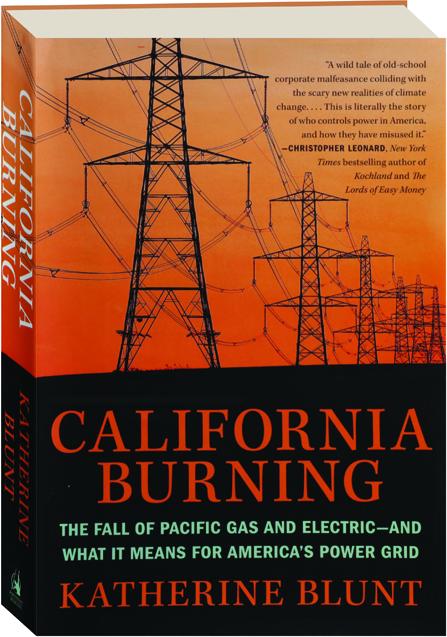Power utilities are generally considered a boring business but after reading this book I realized that there is so much happening in this industry.
Here are my takeaways -
Why is there no competition in utilities?
Power and gas utilities are thought of as natural monopolies.
It makes little sense for competing companies to build duplicative power plants, wires and pipelines - as that would diminish returns on capital intensive investments.
What about public owned utilities/co-operatives?
One of the biggest challenges to public takeover (as many CA cities are hoping for) is - cost of securing ownership. The State of California would have to buy out PG&E shareholders at a premium and acquire its assets. And then it will have to issue bonds to finance purchase and customers would have to pay for it overtime.
Additionally, customers would become liable for problems with the grid and liable for any fire damage.
Why is containing wildfires hard?
Until now, Regulators don't allow utilities to earn returns on day-to-day projects and programs that keep the pipelines and power lines running. Big problem in the process. Utilities are incentivized to do new projects to get a guaranteed rate of return.
As per PG&E’s internal assessment - there are 8 million trees within a striking distance. No utility has the labor, money and the time to clear every tree away from every power line and keep that way indefinitely.
The amount of labor, money and time needed to trim the trees, branches and put them away from the power lines is a lot. And then this exercise needs to be repeated every year or even every season as the vegetation will grow right back.
Add to it, the challenges for the crew to climb and trim trees on a private property threatening a power line. Property owners who are resistant to it.
Also, it is easy to say that a utility company should turn power off when winds pick up but then it opens them up to liabilities because so many people rely on power - medications, baby food etc.
In short, no action that can ever guarantee that the risk of a wildfire is 0.
Also, sometimes things just break. In the Kincade fire - even after inspection a hook broke under 80 miles per hour and live wire fell and started the fire to which the CEO said sometimes things just break.
Challenges to the electric grid
The electric grid is old and needs urgent repair at many places. To get a perspective, the PG&E fire started because of a hook that was installed many years ago (early 1900s) and had undergone so much wear and tear.
Electrification of everything is resulting in increasing demand for electricity.
Fuel mix - As some sources of power go away (coal/nat gas), some new power sources come in - there is a need to build new transmission from these new sources.
Why will electricity prices keep going up?
California already has the highest prices in the country i.e roughly 2x electricity prices than the national average.
2011: $0.13/kWh
2015: $0.15/kWh
2021: $0.20/kWh
So far regulators have been focused on shiny new things - approving renewable projects no matter how expensive those projects are. [This is not a point against renewables, just a matter of fact].
Considering how wildfires are at the forefront of risks - even if the utilities were to redesign and put all the power lines underground - a massive exercise which will involve a lot of complex engineering problems as well. The costs will be huge and who will pay for it is clear aka costs will be passed on to customers.
This is what already happened in the aftermath of the fires caused by PG&E equipment. It is based on the fact that if utilities faced unlimited liability - then they cannot raise funds for what is essentially a capital intensive business. They would neither be able to sell shares nor issue debt. So in this case, lawmakers allowed PG&E to issue low interest bonds to pay for the liability costs. And the company would repay the debt through a surcharge on $5/year on the customer bills. Infact, the State of California established a multi-billion dollar fund that each utility could use to cover liability costs - and it was funded half by the deposits from the utilities and half by the residents of the state through a surcharge on their bills.
It is a well understood maxim that in cases of competition in public utility service, the public, in the long run, generally pays the bills, including the cost of all duplication and other economic waste.


No comments:
Post a Comment